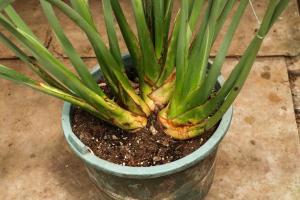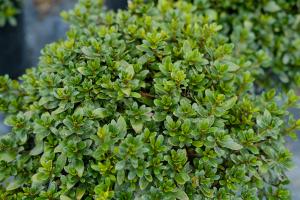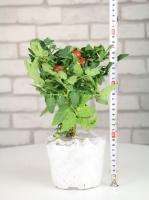Will Soft Water Hurt Plants?
Soft water has become an increasingly popular topic among gardeners and plant enthusiasts. The question on everyone's mind is, "Will soft water hurt plants?" The answer is not as straightforward as a simple "yes" or "no." There are benefits and drawbacks to using soft water on plants that need to be considered.
The Benefits of Soft Water for Plants
Soft water is water that has a low mineral content, usually due to the removal of calcium and magnesium ions. This type of water can be beneficial for plants in several ways. Firstly, because soft water has a lower pH than hard water, it is less alkaline, making it easier for plants to absorb the nutrients they need. Secondly, plants that prefer acid soil, such as azaleas, rhododendrons, and blueberries, benefit from soft water because it lowers the overall soil pH. Finally, soft water is often free of harmful chemicals, such as chlorine and fluoride, which can be toxic to plants when present in high concentrations.
The Drawbacks of Soft Water for Plants
Despite the benefits, soft water can have drawbacks when used on plants. Firstly, soft water lacks the minerals that plants need to grow and thrive. This can lead to nutrient deficiencies, which can stunt plant growth and lead to poor yields. Secondly, soft water can be high in sodium, which can be toxic to some plants, especially those that are sensitive to salt. Finally, because soft water is often low in calcium and magnesium, it can lead to a condition called "blossom end rot" in tomatoes, peppers, and other fruits and vegetables.
What Can You Do?
If you have access to soft water and want to use it on your plants, there are a few things you can do to mitigate the negative effects. Firstly, you can add a calcium and magnesium supplement to your soil to ensure that your plants are receiving adequate nutrition. Alternatively, you can use a water filter to remove excess sodium and other minerals from your water. Finally, if you notice signs of nutrient deficiency or other problems in your plants, it may be best to switch to hard water for a short period to see if that resolves the issue.
In Conclusion
In conclusion, soft water can have both benefits and drawbacks when used on plants. While it can make it easier for plants to absorb nutrients and lower the pH of soil, it can also lead to nutrient deficiencies and high sodium levels. If you want to use soft water on your plants, consider adding a calcium and magnesium supplement or using a water filter to remove excess minerals. Ultimately, the decision to use soft water on your plants comes down to your specific needs and preferences as a gardener.

 how many times do yo...
how many times do yo... how many planted tre...
how many planted tre... how many pine trees ...
how many pine trees ... how many pecan trees...
how many pecan trees... how many plants comp...
how many plants comp... how many plants can ...
how many plants can ... how many plants and ...
how many plants and ... how many pepper plan...
how many pepper plan...
































